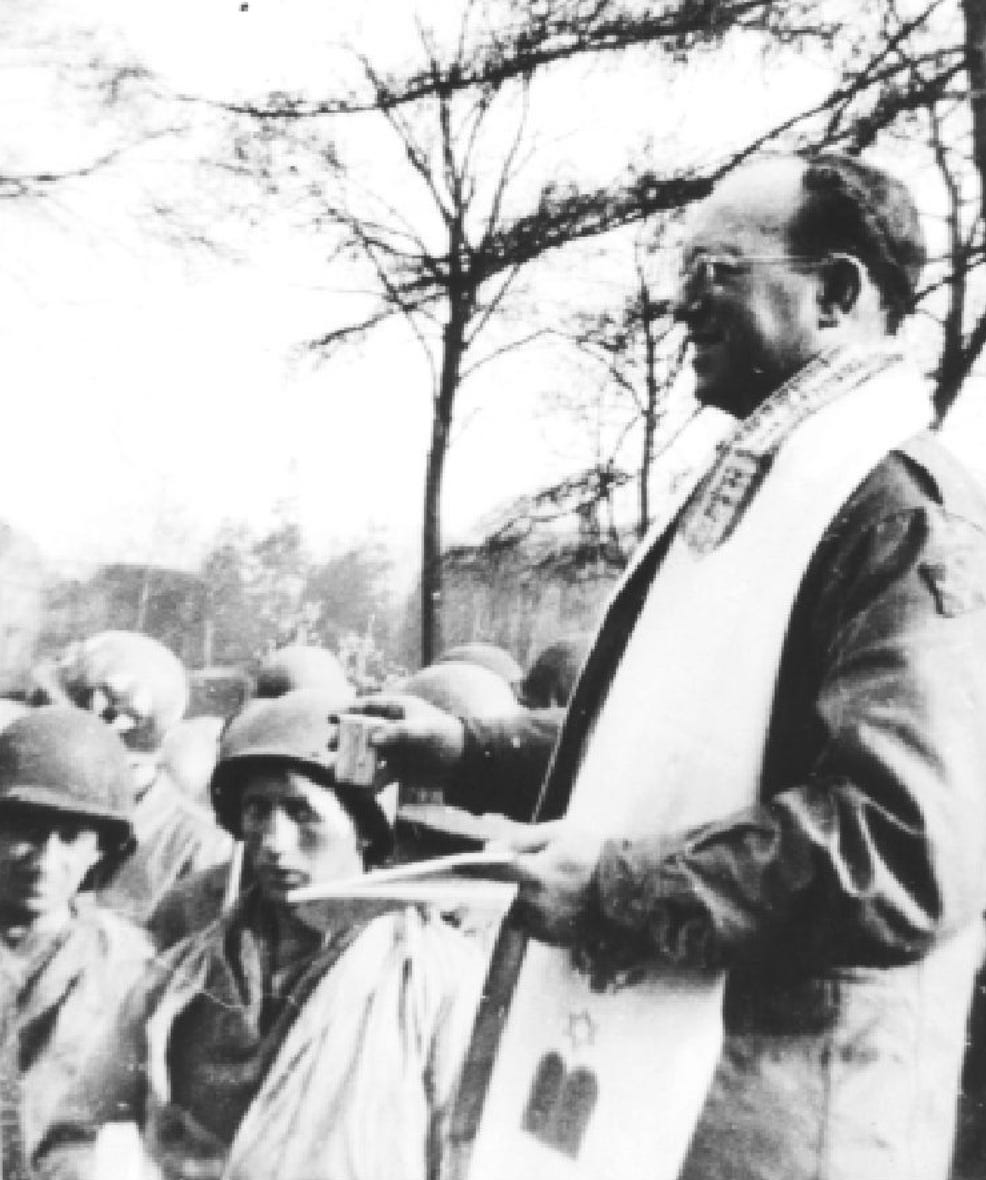These children had no homes—and nothing to eat. The cruel Nazis had bombed their cities.
A rabbi writes to his young son during WWII
Approximately 1.5 million Jews enlisted with the Allied forces during World War II in an effort to defeat the armies of Nazi Germany, Japan and Italy. As a result, close to 300 rabbis also signed up to work as Jewish chaplains wherever such support may have been needed, be it on the frontline or in concentration camps. One of the first to set foot on German soil and hold a service for the troops was Rabbi Morris Frank of the Fourth Infantry Division—born in Chattanooga, Tennessee in 1906 and ordained in 1935 by the Jewish Theological Seminary of America. Frank worked tirelessly to connect with and offer comfort not just to his division’s Jewish contingent, but to people of all faiths, and his efforts were widely appreciated. In May 1944, weeks before the Normandy Landings took place and with family on his mind, Rabbi Frank took a moment to write one of many letters home—this one to his four-year-old son, Henry.
1 May ’44
Dear Son—
A few days ago I paid another visit to the school for refugee children. You remember—I wrote you about the school where young boys and girls were brought over from parts of Europe. These children had no homes—and nothing to eat. The cruel Nazis had bombed their cities—and they were left without any place to go. I know you would want to help these children so I went to see them and brought them some fruit juices, candy, cookies, and chewing gum. This made them very happy. Seeing them happy made me think of you. Thank God, Henry, you live in America. You can show your thankfulness by helping America stay free—by seeing that everyone has freedom. After this war—and when you grow up—there will be plenty to do and you must learn to do it. It will be your job to help people all over the world keep peace. It will be up to you to do your part to do away with war. Henry—you must always remember that every child whether he is the son of a Hindu, or a little Chinese boy, or a child of a Ukraine peasant, whether he is a youngster born in Burma, or he is one of our sharecropper’s children or whether he is a Jewish child in one of Europe’s Ghettos—all these must be free—and they must have food. They must be free to think, to say, and to do what they think is right. It’s a big job, Son, but I know you can be of help—and I want you to be useful.
Henry you can’t imagine how happy and thrilled I was to learn of your visit to Grandma and Grandpa in Chattanooga. You certainly made their Passover happy. I think your Mamma is just too precious—
Which reminds me, Son. Have you been taking good care of your Mother? You know we both think she is wonderful—the best Mamma in the whole world—and just now with me away—it’s up to you to take care of her. See that she is happy—and not lonesome. Once in awhile tell her you love her—and tell her that your Daddy loves her very much.
I am sending you a few pictures. They are for my only Son from his only Daddy.
Give Mamma a big hug and a big kiss for me. Give your Grandma a kiss for me—And to you I send all my love—
Your Daddy
This letter can be found in the book, Letters of Note: War. Rabbi Frank’s original correspondence is held at The Jacob Rader Marcus Center of the American Jewish Archives, Cincinnati, OH, SC-15430.




Very appropriate posting for this time. I'd love to know what his son did in his life.
I think we’re going to hear too many echoes of this about the people of Ukraine—but we hear about such atrocities daily with the net.
Knowing Putin targets civilians deliberately makes me think his own end will very ugly, if ever in the hands of Ukrainians who’ve lost families in this way.
Uncountable war crimes. If he’s truly Christian, his afterlife is assured in a very unpleasant place.